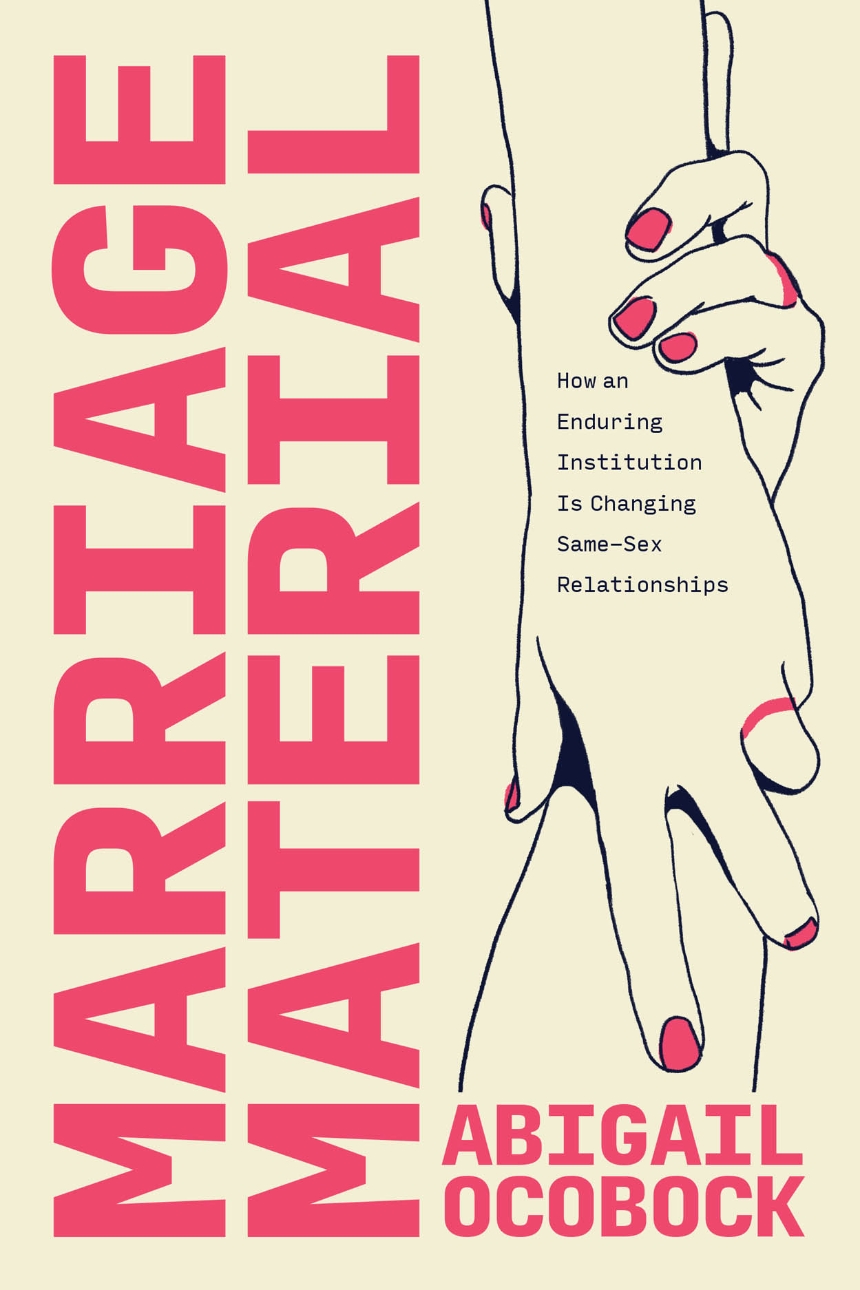Marriage Material
How an Enduring Institution Is Changing Same-Sex Relationships
9780226836263
9780226836249
9780226836256
9780226845845
Marriage Material
How an Enduring Institution Is Changing Same-Sex Relationships
A cutting-edge study of marriage’s transformative effects on same-sex relationships.
It is no secret that marriage rates in the United States are at an all-time low. Despite this significant decline, the institution of marriage endures in our society amid historic changes to its meaning and practice. How does the continuing strength of marriage impact the relationships of same-sex couples after the legalization of same-sex marriage?
Drawing on over one hundred interviews with LGBTQ+ people, Marriage Material reveals the transformative impact marriage equality has had on same-sex relationships. Sociologist Abigail Ocobock looks to same-sex couples across a wide age range to illuminate the complex ways institutional mechanisms work in tandem to govern the choices and behaviors of individuals with different marriage experiences. Ocobock examines both the influence of marriage on the dynamics of same-sex relationships and how LGBTQ+ people challenge heteronormative assumptions about marriage, highlighting the complex interplay between institutional constraint and individual agency.
Marriage Material presents a bold challenge to dominant scholarly and popular ideas about the decline of marriage, making clear that gaining access to legal marriage has transformed same-sex relationships, both for better and for worse.
It is no secret that marriage rates in the United States are at an all-time low. Despite this significant decline, the institution of marriage endures in our society amid historic changes to its meaning and practice. How does the continuing strength of marriage impact the relationships of same-sex couples after the legalization of same-sex marriage?
Drawing on over one hundred interviews with LGBTQ+ people, Marriage Material reveals the transformative impact marriage equality has had on same-sex relationships. Sociologist Abigail Ocobock looks to same-sex couples across a wide age range to illuminate the complex ways institutional mechanisms work in tandem to govern the choices and behaviors of individuals with different marriage experiences. Ocobock examines both the influence of marriage on the dynamics of same-sex relationships and how LGBTQ+ people challenge heteronormative assumptions about marriage, highlighting the complex interplay between institutional constraint and individual agency.
Marriage Material presents a bold challenge to dominant scholarly and popular ideas about the decline of marriage, making clear that gaining access to legal marriage has transformed same-sex relationships, both for better and for worse.
288 pages | 6 x 9 | © 2024
Sociology: Demography and Human Ecology, Individual, State and Society, Sociology--Marriage and Family
Reviews
Table of Contents
Introduction: Rethinking Marriage
Part I. Gaining Marriage
1. Marriage Embracers: The Power of Marriage, Old and New
2. Marriage Rejecters: Navigating the Pulls of Marriage
3. Marriage Assumers: It’s Just What You Do
Part II. Doing Marriage
4. Proposal Pressures
5. Fights and Finances
6. Marital (Non)Monogamy
Conclusion
Acknowledgments
Methods Appendix
Notes
References
Index
Part I. Gaining Marriage
1. Marriage Embracers: The Power of Marriage, Old and New
2. Marriage Rejecters: Navigating the Pulls of Marriage
3. Marriage Assumers: It’s Just What You Do
Part II. Doing Marriage
4. Proposal Pressures
5. Fights and Finances
6. Marital (Non)Monogamy
Conclusion
Acknowledgments
Methods Appendix
Notes
References
Index
